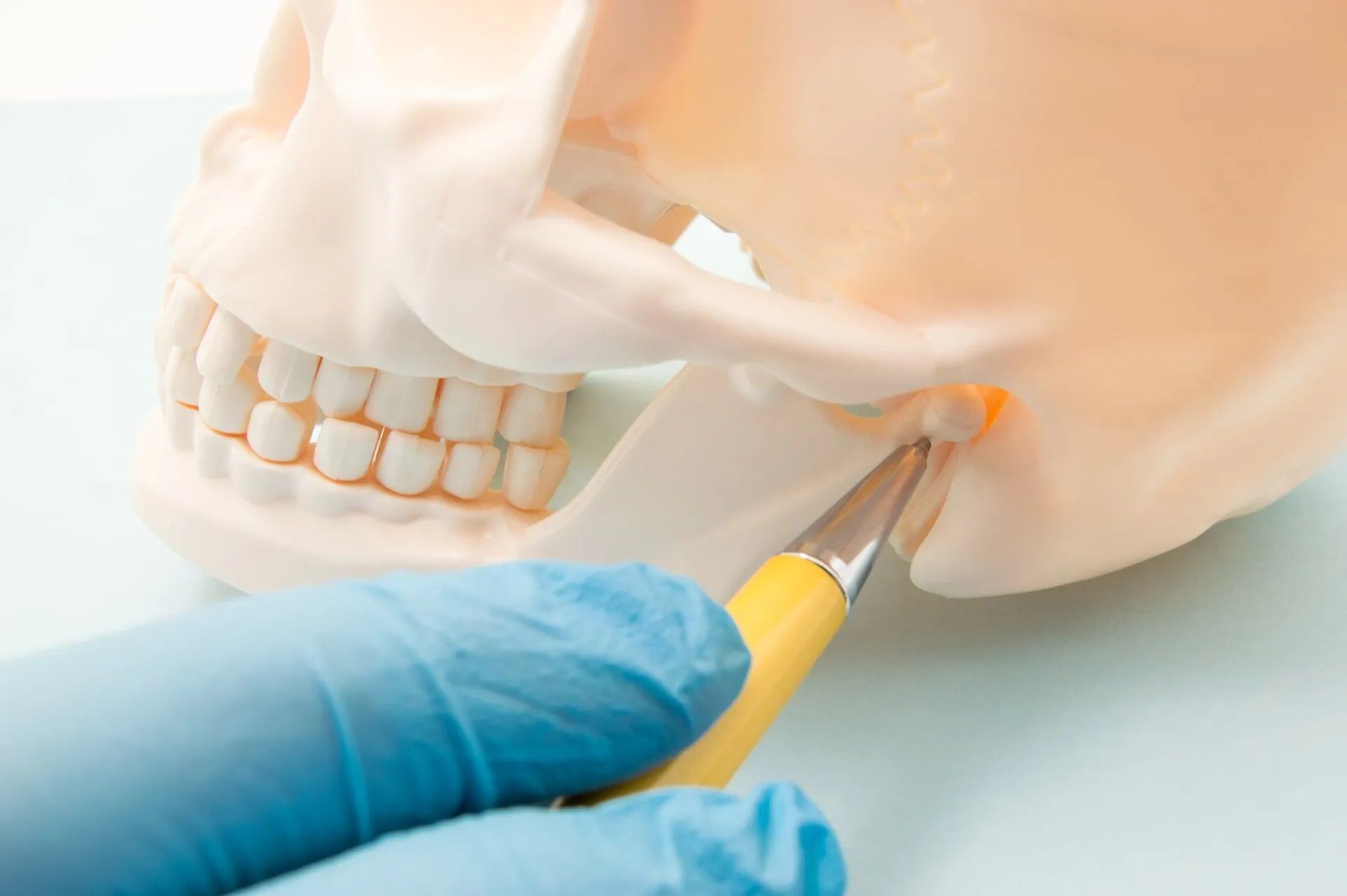TMJ Specialist
Does your jaw click, pop, or feel tight? Do you wake up with headaches or neck and jaw pain? A temporomandibular joint disorder (TMD) affecting your temporomandibular joint (TMJ) might be to blame.
TMJ Treatment Center
TMJ is the shortened name of the physical joints that connect your lower jaw to your skull. They are the ball and socket joints that allow you to open your mouth to chew, talk, and yawn. The temporomandibular joint is one of the most complex joints in the human body, and when it becomes inflamed, it can affect your ability to chew healthy foods and communicate clearly. A disorder of the TMJ is technically called TMD, or temporomandibular disorder, but TMD and TMJ have become interchangeable when referring to the swelling and pain related to the jaw joint.
There are many causes of TMJ pain including nighttime clenching and grinding, arthritis in one or both joints, missing teeth, a misaligned bite or crooked teeth, and injuries to the head and neck.
Symptoms of TMD
Symptoms of a TMJ disorder can vary from patient to patient and may mimic other conditions. The most common symptoms include:
- Headaches that mimic migraines
- A dull ache or soreness in the jaw muscles
- Stiffness that radiates to the neck and back
- Ear pressure like the feeling you get when flying
- Tightness, clicking or popping in the jaw joint when yawning or eating soft foods
- The inability to open your mouth all the way
- Feeling like one tooth is suddenly “out of place”
Some patients will have all of these symptoms, and some may have one or two.
Diagnosis and Treatment
While many cases of TMD are misdiagnosed, an exam by Dr. Prabha can generally determine whether your symptoms are a result of a TMJ disorder. A physical examination by placing pressure on the muscles and joints to feel for tightness, a complete evaluation of your bite, and x-rays can help Dr. Prabha figure out the cause of your pain. She may also order an MRI or CT scan to look for signs of joint deterioration that can’t be seen on x-rays.
Once a diagnosis is reached, there are many treatment options available. Splint therapy, physical therapy, Trigger point therapy, prolotherapy are the most common. Hot and cold packs, “swallowing” your yawns, and a temporary soft food diet can also help while your muscles relax and heal. Surgery or disc arthroscopy should be done only in the worst case scenarios. In many cases the discomfort could be treated with out surgery. Treatments are no longer a Night guard followed by surgery.
Dr. Prabha and the team at Prime Smile Dental Care are here to help you. We can answer all your questions and get you out of pain. If you suspect a TMJ disorder is the cause of your discomfort call us today!
FREQUENTLY ASKED QUESTIONS





